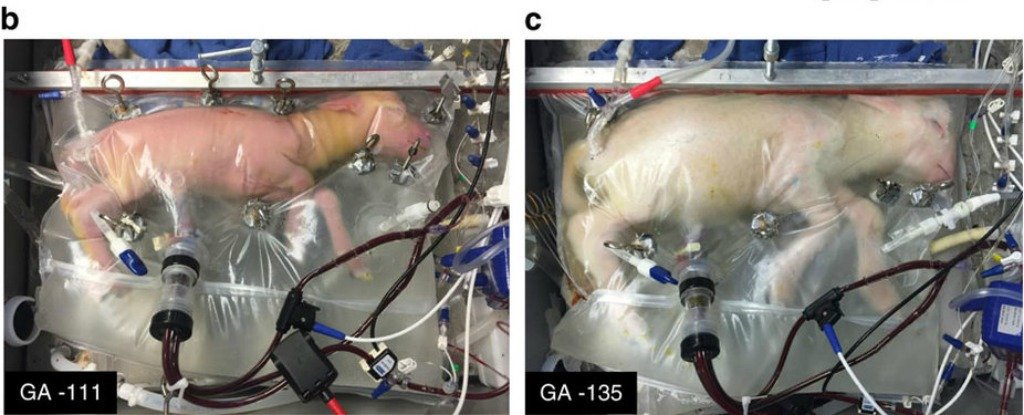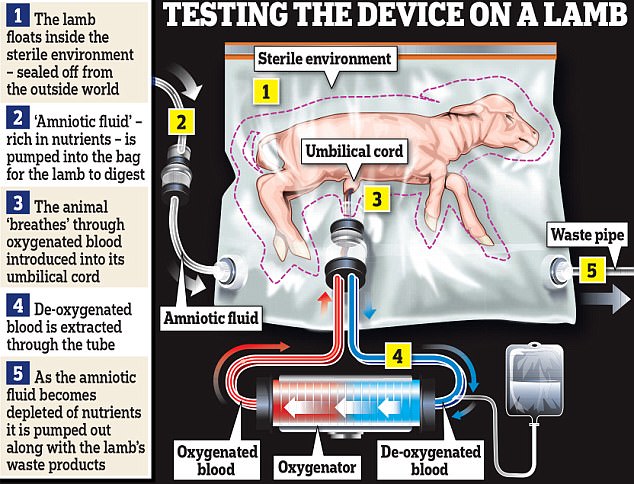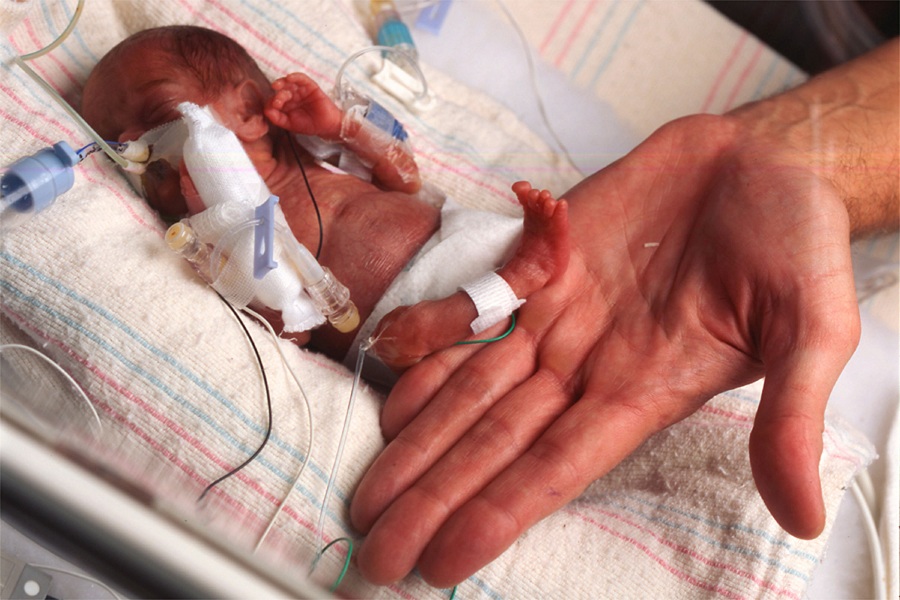A new development that could help increase the survival rate of premature babies, is giving hope to parents everywhere.
The "artificial womb", which incorporates a plastic bag filled with artificial nutrient-rich synthetic amniotic fluid has successfully been tested and could be ready for human babies in the coming years.
A premature lamb that was the equivalent to a 23-week-old human fetus was successfully grown in an 'artificial womb' for 4 weeks.
8 lambs were born prematurely but continued to develop in the "Biobag".

The infants own heart circulates blood through the umbilical cord into an external gas-exchange machine which takes the place of the mother's placenta.
Unlike conventional incubators, this device helps to reproduce the conditions of a real womb and helps to protect the fetus from the outside world.
No mechanical pump is used because even gentle artificial pressure could overload the underdeveloped heart and be fatal to the fetus.
An electrolyte solution was designed to mimic amniotic fluid. While the lamb's umbilical cord receives replenished blood, oxygen and nutrients.
Hoping to improve the chance of survival for extremely premature babies, scientists think the device will be ready for human trials in 3-5 years.
Dr. Alan Flake, director of the Center for Fetal Research at the Children's Hospital of Philadelphia said, "Our system could prevent the severe morbidity (illness) suffered by extremely premature infants by potentially offering a medical technology that does not currently exist."
There are significant differences between baby lambs and humans, however. Lambs grow quicker, taking only 5 months to reach full term as opposed to 8 months for a human baby.

Currently babies born under 23 weeks is close to zero, while at 23 weeks it is 15%, at 24 weeks it's 55% and at 25 weeks about 80%.
In the critical period of 23-28 weeks, babies experience major developments in their lungs and other organs. This new development could dramatically improve the outcome for extremely premature babies.
"This system is potentially far superior to what hospitals can currently do for a 23-week-old baby born at the cusp of viability. This could establish a new standard of care for this subset of extremely premature infants," Dr. Flake said.
What do you think of the developments?

